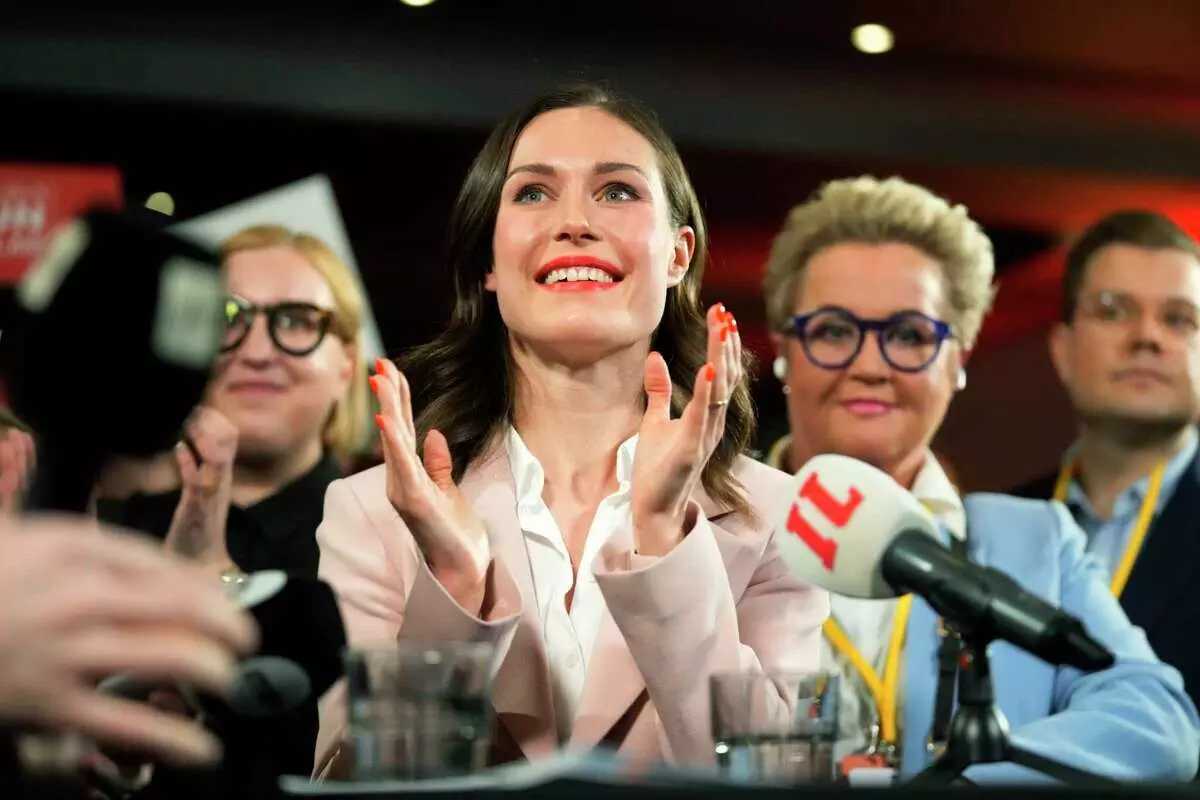
Finland sees rightward shift as the country officially sets to join NATO
text_fieldsHelsinki: In a historic move, Finland will officially join NATO in the coming days, the NATO secretary general has announced.
“All 30 Nato allies have now ratified the accession protocol,” Jens Stoltenberg said on Friday. “Finland will formally join our alliance in the coming days.”
The move brings to an end decades of Finnish neutrality over NATO. Finland, which has an 832-mile border with Russia, is set to become the seventh NATO country on the Baltic Sea.
Sanna Marin, the Finnish prime minister, tweeted: “As allies, we will give and receive security. We will defend each other. Finland stands with Sweden now and in the future and supports its application.”
Finland could finally join NATO this week after Turkey ratified its membership last week, lifting the last hurdle to the membership for the Nordic nation that shares a long border with Russia.
The country will now come under NATO’s mutual defence umbrella, which treats an attack on any individual member country as an attack on the organisation requiring a collective response.
Finland’s move to join Nato marks a staggering turnaround in public opinion in the country. Before Russia’s invasion of Ukraine, only a third of Finns supported joining NATO. Russia’s war on Ukraine led almost overnight to support for joining becoming an overwhelming majority, reports The Guardian.
Finnish voters have given a boost to conservative parties in a weekend election, depriving left-wing Prime Minister Sanna Marin of another term. Marin won popularity for her Cabinet's handling of the COVID-19 pandemic and for her European Union nation's strong support for Ukraine following Russia's full-scale invasion last year.
But Sunday's election was largely fought over economic issues, with voters in the nation of 5.5 million people shifting their allegiances significantly to parties on the political right as they seek solutions to rising state debt, inflation and other economic problems.
The bloated debt will pose a challenge for the new government, particularly since NATO membership will require Finland to increase its defense spending.
The centre-right National Coalition Party, or NCP, won 20.8 percent of the vote, which is more than any other party and puts it in a position to try to form a government. The right-wing populist party The Finns won 20.1 percent and Marin's Social Democrats 19.9 percent.
Juhana Aunesluoma, a professor of political history at the University of Helsinki, noted that about one-third of the votes went to left-wing parties and two-thirds to parties on the right.
It was “a big swing from left to right", he said in an interview on Monday with The Associated Press.
Marin's defeat is the latest setback for the left amid a larger shift to conservative and nationalist parties across Europe in recent times. Sweden ousted its left-wing government in a rightward shift last year, followed by an election in Italy that resulted in the first far-right-led government since the end of World War II.
Meanwhile, Spain's left-wing government is under pressure, with the right-wing Popular Party and far-right Vox party ahead as the country heads to a vote in December.
The winning party in Finland traditionally kicks off government formation talks, and National Coalition led by Petteri Orpo, a 53-year-old former finance minister is expected to start negotiations next week with the goal of putting together a Cabinet enjoying a majority in the 200-seat parliament, the Eduskunta.
Orpo told the AP late Sunday that he intends to negotiate with all parties in order “to find the best possible majority government for Finland”.
If Orpo, the most likely candidate to be the next prime minister, ends up choosing the Social Democrats as a coalition partner, that could mean Marin could theoretically get a post — albeit not the prime minister's job — in the next government.
Still, for now, a coalition with other conservatives appears to be the most likely outcome.
Finnish media touted the The Finns, which ran on an anti-immigration and anti-EU agenda, as the biggest winner of the election. The populists scored the best result of their history under the leadership of Riikka Purra, who took over the party only in 2021.
Orpo has said his party is open to cooperation with The Finns as the two parties largely share views on developing Finland's economy though have differences in climate policies and EU issues.
The biggest losers of the election were small and mid-size parties, particularly the Green League and the Left-Alliance — both members of Marin's outgoing coalition Cabinet — which were left in the shadow of the big three.
Aunesluoma noted that Marin's coalition partners, who shifted to the left during their years of alliance with the Social Democrats, lost votes.
While Russia's invasion of Ukraine prompted Finland to seek NATO membership in May 2022, neither the historic decision to abandon the nation's nonalignment policy nor the war emerged as major campaign issues, given broad consensus in society and among the parties.
The National Coalition Party, which has advocated NATO membership for two decades, will need to make firm commitments on military spending to meet a NATO target of 2 percent of a member nation's GDP being spent on defense.
“This is something that they will do. But it won't be easy, given that the government will actually be facing severe cuts in public spending,” said Aunesluoma. Increasing spending on defence while facing pressure to cut welfare spending will be a balancing act for the new government, he said.
A total of nine parties were elected to the Parliament, according to initial results. Voter turnout was 71.9 percent, slightly lower than in the 2019 election.
With inputs from PTI





